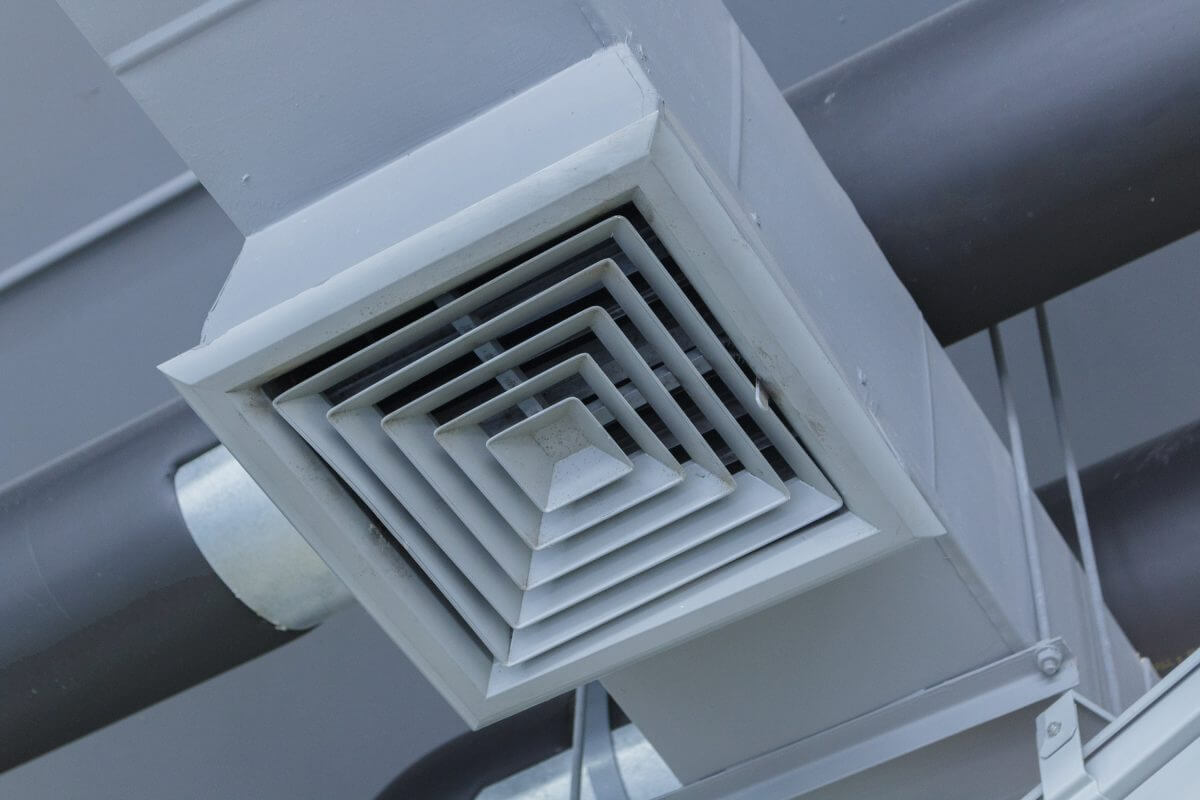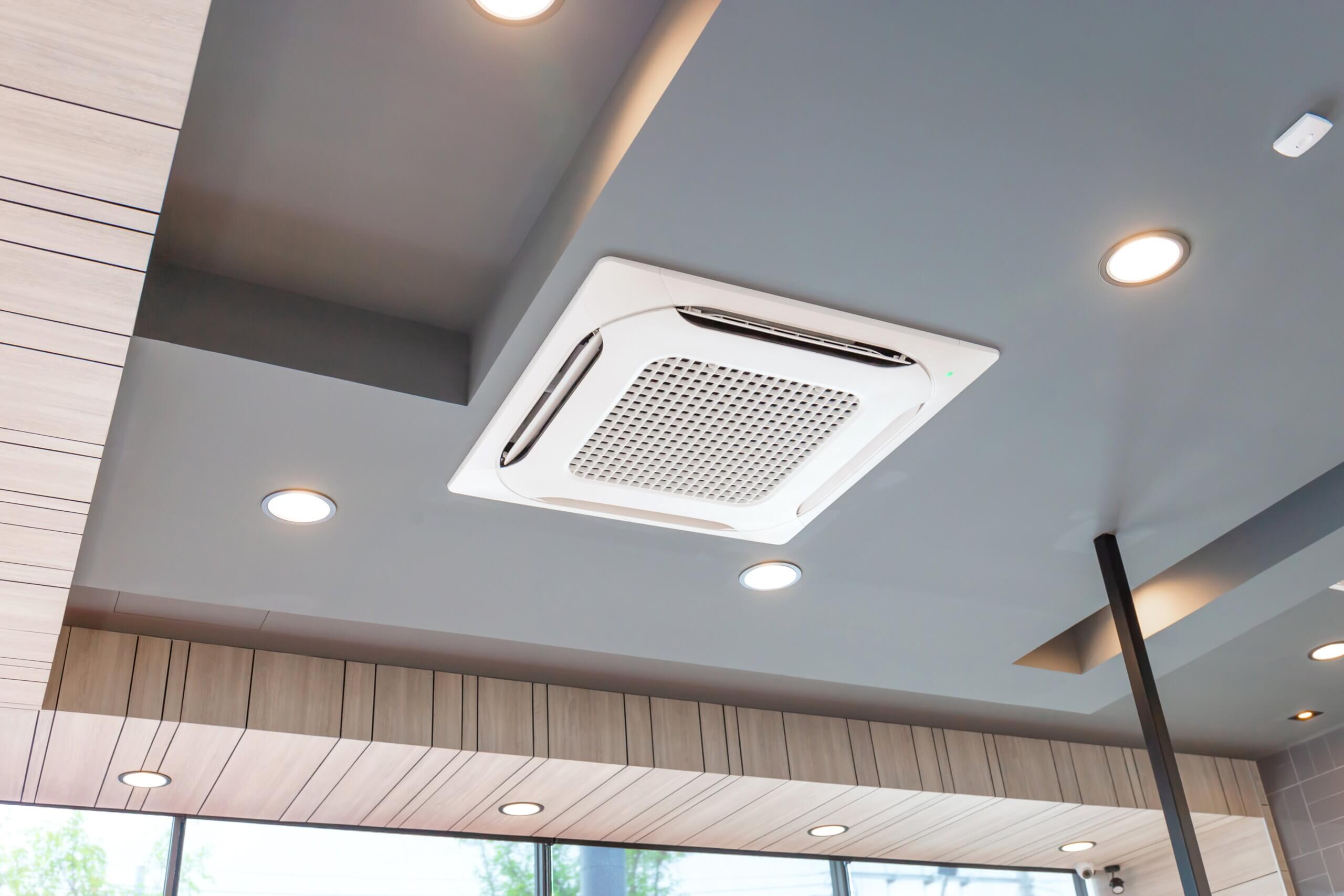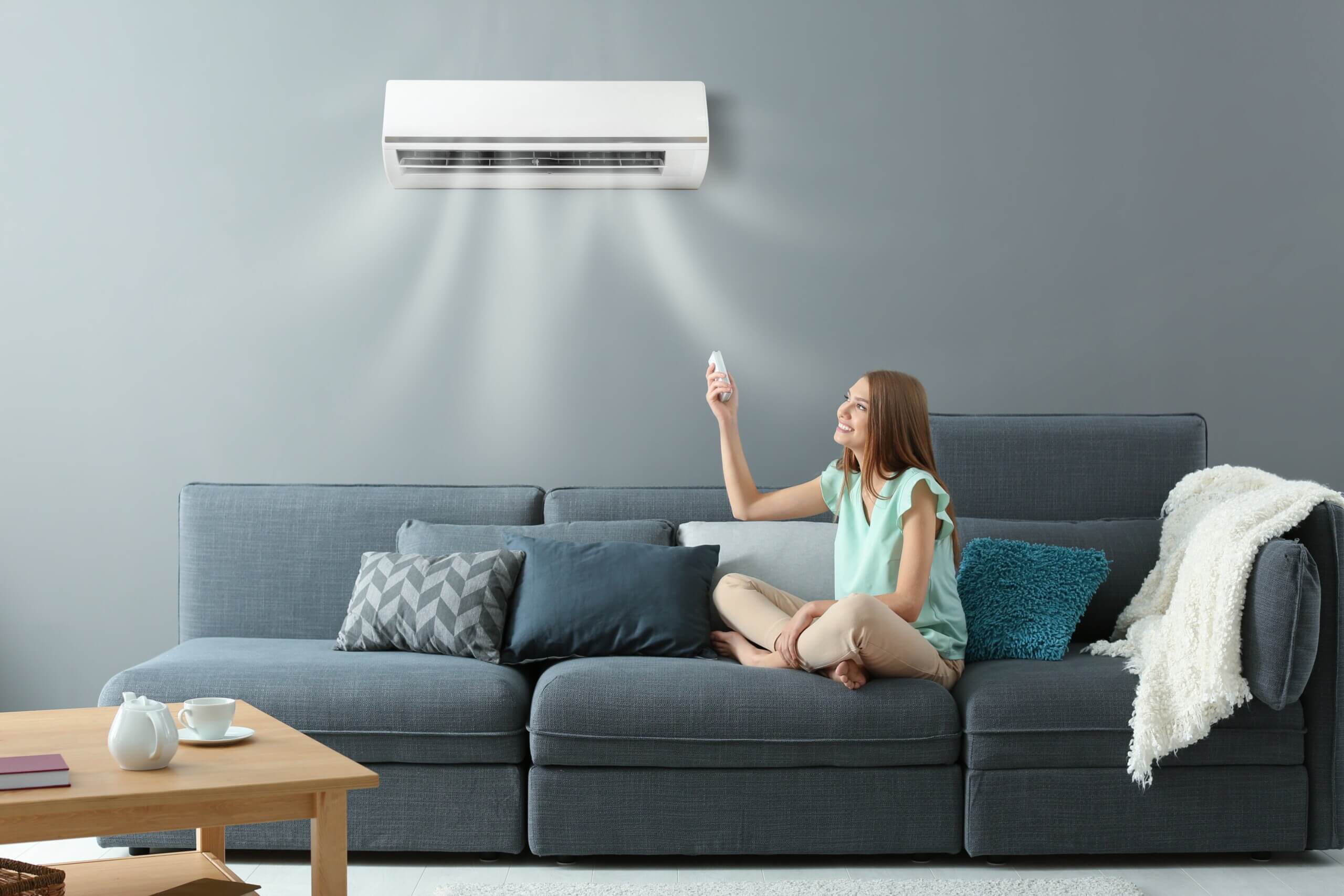How Much Electricity Does An AC Use?
Our air cons keep us comfy in winter and refresh us in summer, but they can also be expensive to run if we’re not careful. In fact, heating and cooling costs account for about 40% of the average Australian household’s electricity bill.
Knowing how much electricity your AC uses can help you find ways to lower its energy consumption and cut costs on your electric bill.

How much electricity does an AC use?
As you’d expect there’s a lot of variation when it comes to AC electricity usage and costs.
Running your air con can cost anywhere from 25 cents up to $3.45 per hour, depending on a whole range of factors like the type of system you have, the room temperature you want to achieve and how hot or cold it is outside.
Some of the factors that influence how much electricity your AC will use, include:
Type of air conditioning system
Ducted refrigerative air conditioning systems (also known as central air conditioning) are the biggest energy guzzlers as they’re designed to cool and heat the entire home.
Running a central air conditioner for 4 hours a day might cost you $650 over winter and $1,000 over the summer months. However, climate zoning capabilities in modern ducted air conditioners improve the energy efficiency somewhat, allowing you to switch off the air con for rooms that aren’t being used.
Wall mounted split systems are more economical as they will only heat or cool a single room. AC units with more energy star ratings will require less energy compared to other options.
Ducted evaporative air conditioning is the most energy efficient as it relies on the natural phenomenon of evaporation to provide a cooling breeze to the home. The trade off is that evaporative air con isn’t as reliable, especially in humid locations.
Read our full guide to find out more about the cost of ducted vs split system air conditioning.
Efficiency ratings
Buying a more energy efficient system will mean less electricity is used to keep your home at a comfortable temperature. Products with more energy stars will cost more at the outset, but in the long run they could save you significantly on your power bill.
Size of room and size of air con
The larger the room, the harder your air con will have to work. According to Canstar Blue, the variation in cost for different sized rooms is about:
- $0.25 – $0.35 per hour for small rooms
- $0.36 – $0.70 per hour for medium rooms (36sqm)
- $0.70 -$0.95 per hour for large rooms (50sqm)
Keep in mind that larger rooms will also need larger air conditioning systems to effectively heat and cool the space.
Check out our guide: What size air con do I need?
Thermostat settings
If you set your thermostat really low in summer or really high in winter, your air con will have to work very hard to keep your rooms at that temperature.
The recommended settings are:
- 18 – 20 degrees in winter
- 25 – 27 degrees in summer
Although it might not make much of a difference to how you feel, adjusting your thermostat by even a few degrees could reduce your AC’s power consumption.
According to energy.gov.au, you could save up to 10% for every degree you increase your thermostat in summer and for every degree you decrease your thermostat in winter.
Time of year
It’s typically cheaper to run your reverse cycle air conditioner in winter compared to summer. This is especially true for locations like Mandurah where winters tend to be quite mild.
Fan speed
Faster fan speeds will have a slightly higher energy use than lower fan speeds.
How to reduce the cost of running your air conditioner
You might not be able to control what type of air con is in your home or how much electricity costs, but there are still many things you can do to help improve the energy efficiency of your AC and cut back on running costs
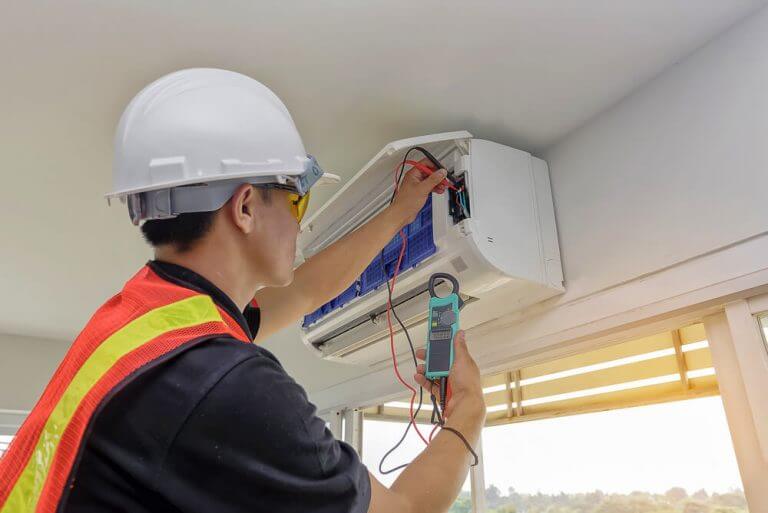
Try the tips below to get started:
Perform Regular Maintenance
Air conditioning parts, such as filters and coils need regular maintenance to ensure the system continues to work efficiently.
Regular maintenance can help to save money in the long run. If you neglect your air conditioner, it may steadily decline in performance while energy use increases. This means it will cost more to run.
Yearly maintenance should be performed by a qualified technician, and although this costs money, it will save you in the long run. A Mandurah air conditioning professional can identify any small problems early and prevent them becoming costly repairs in the future.
Clean or Replace Filters
If the filters become dirty or clogged, normal airflow is reduced and this forces the system to struggle, reducing efficiency and costing more to run. Cleaning or replacing your air conditioner’s filters on a regular basis is something most people can do themselves.
Clean the Outside Unit
Part of maintaining your air conditioner is paying attention to the outdoor unit. Depending on where it’s located you may or may not be able to do this yourself. However, to ensure your air conditioner continues to run efficiently, make sure the outdoor unit is free from any dirt, debris or leaves.
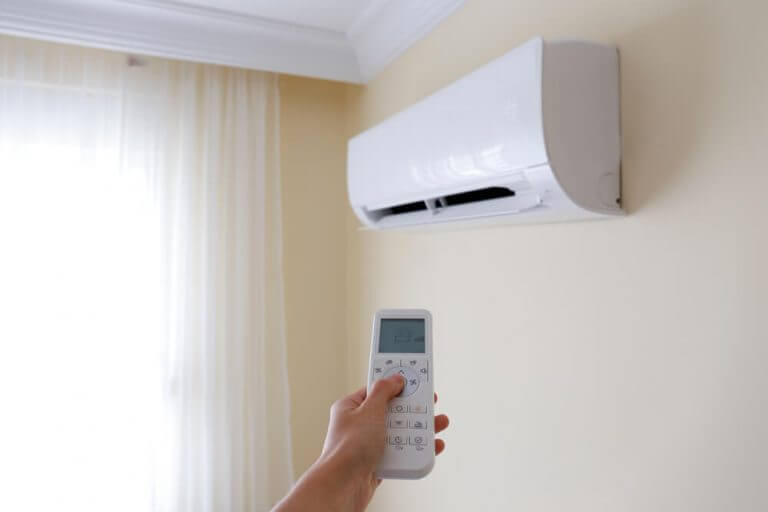
One of the most energy-efficient things you can do is set a comfortable temperature that doesn’t overwork your air conditioner. Energy.gov.au recommends setting your thermostat between 18 and 20 degrees in winter and between 25 and 27 degrees in summer.
Also read: How to efficiently run your air conditioning at home.
Consider Ceiling Fans
Another way to reduce the running costs of your air conditioner is to use ceiling fans if you have them or are willing to install them.
One way you can do this is to run your air conditioner for a short period of time when you enter the home. Once the room has cooled, turn it off and use ceiling fans to circulate the cool air.
Ceiling fans may also allow you to increase the temperature on your air conditioner slightly while still maintaining a comfortable environment.
Seal and Insulate Your Home
It would be a waste of energy and money to run your air conditioner when there is hot air leaking into your home. Make sure you seal any leaks or cracks to prevent this from happening.
Also, if your home isn’t already insulated, this will provide a huge money-saving benefit when running your air conditioner. Insulation helps prevent heat gain in summer and heat loss in winter.
Install Energy Efficient Windows
An area where a lot of heat loss and gain occurs is through the windows. Energy efficient windows can minimise the use of air conditioners.
Modern technology has made it possible for windows to insulate against heat (and cold) up to four times better than normal windows. Options include low e-glass, double glazed and good weather seals.
Air conditioner installation and maintenance services in Mandurah
We need effective heating and cooling to keep us healthy and comfortable year round, but it’s also important that we run our systems efficiently to reduce electricity usage.
Whether you’re choosing a new air conditioner for your home, or are just looking for ways to reduce how much electricity your AC uses, iBreeze is here to help. We offer air conditioning installation, maintenance and repairs services in Mandurah, Rockingham and beyond.
Give our friendly team a call today on (08) 9534 9491 to see what we can do for you.
For energy efficient, effective heating and cooling solutions all year round, reach out to our team of specialists. We’ll deliver the highest comfort to both your residential and commercial space, no matter the size or scale.
Sunday Closed
Monday 9:00am – 5:00pm
Tuesday 9:00am – 5:00pm
Wednesday 9:00am – 5:00pm
Thursday 9:00am – 5:00pm
Friday 9:00am – 5:00pm
Saturday Closed
